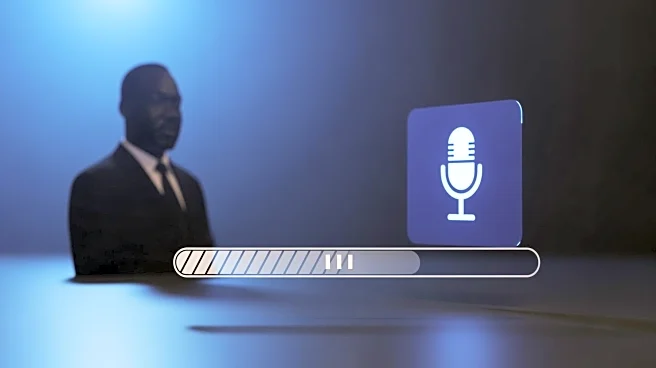What's Happening?
OpenAI has paused the generation of deepfake videos depicting Martin Luther King Jr. on its Sora platform following complaints from his family about 'disrespectful depictions.' The decision comes after
Bernice A. King, the civil rights leader's daughter, contacted OpenAI to request the removal of such content. Sora, a text-to-video AI app, has faced backlash for creating lifelike videos of deceased celebrities, raising concerns about the ethical implications of AI-generated media. OpenAI has stated that public figures and their families should have control over their likenesses, and representatives can request their images not be used in AI videos.
Why It's Important?
The pause in generating deepfake videos of Martin Luther King Jr. underscores the ethical challenges associated with AI technology in media creation. These videos can distort historical narratives and disrespect the legacy of historical figures, leading to misinformation. OpenAI's decision to halt such content reflects a growing awareness of the need for ethical guidelines in AI media generation. This action may influence other tech companies to implement similar measures, shaping the future of AI-generated content and its impact on society.
What's Next?
OpenAI plans to continue strengthening its guardrails for historical figures, allowing representatives and estate owners to request the removal of their likenesses from AI-generated videos. This could lead to broader industry standards for the ethical use of AI in media creation. Additionally, OpenAI's decision may prompt discussions among policymakers and tech companies about the regulation of AI-generated content, particularly concerning historical and public figures.
Beyond the Headlines
The use of AI to create deepfake videos raises significant ethical and legal questions about consent and the representation of deceased individuals. This development could lead to long-term shifts in how society views and interacts with AI-generated media, potentially influencing cultural norms and legal frameworks around digital likenesses.









